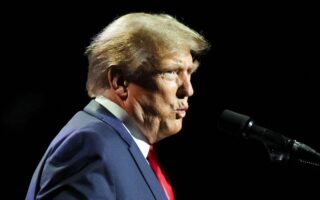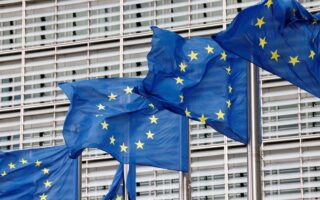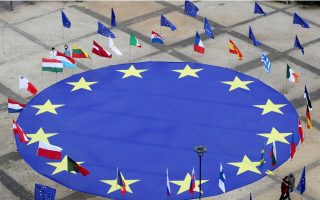Whoever is elected, Europe’s on its own

Whatever the result of the US elections in just over two weeks, it is already clear that the European Union will have to move swiftly to reinforce its defense and trade, and to deal with the climate crisis. Whether Donald Trump or Kamala Harris is elected president, the EU will face serious problems in these crucial sectors, with only the degree of difficulty differing on the basis of who is elected president and who controls the two houses of Congress. If Trump wins, he will stop supporting Ukraine and will weaken defense ties with European countries. If he persists in seeing the EU as a competitor, the United States will impose tariffs on European products, disrupting the largest trade relationship in the world (worth some 1.3 trillion dollars annually, with the balance favoring the EU by 131 billion in 2022). On the climate, the former president says that he will pull the US out of the Paris Agreement once again and will encourage drilling for fossil fuels.
If Harris is elected, she will continue to support Ukraine and will maintain good defense ties with Europe. She will not be as “tough” on trade as Trump, but the Biden administration’s Inflation Reduction Act has already been set up to benefit the American economy at the cost of Europe’s. Harris will take seriously the need to manage the climate crisis, but she will have to balance this with the equally urgent need to support the economy. This could lead to the softening of necessary measures. If Trump is president and Congress is controlled by his allies, his proposals will be enacted swiftly and without argument. If the Democratic Party controls Congress, it may limit the damage of his decisions. However, even “diluted” Trump decisions will not benefit the EU. If Harris wins, her actions will either be limited by a hostile Congress or – if the Democrats have the majority – will be supported, again with the caveats mentioned above.
In the best case, then, EU-US ties will remain roughly as they are, with the two powers following similar policies in defense, trade, climate change and the need to support democracy. In the worst, the Europeans will be forced to deal with the heightened dangers caused by a Trump presidency. Also, the triumph of an autocratic leader whose chief concern is himself will encourage political forces in Europe who are already allied with him and, in several instances, with Vladimir Putin, too. It is quite probable that the EU-US relationship will develop somewhere between these two scenarios. But whether Trump wins or loses, he has already shaped the political landscape of the day after the election, both in America and in transatlantic relations. If he loses, he and his supporters will question the result, raising the danger of this pushing the United States into conflict at home and recklessness abroad. Whether this phase passes quickly or becomes the new normal, Trump’s extreme positions on many issues (like the judicial capture that he pulled off in 2016-20) will push the United States into positions far from those of liberal democracy and open trade that so benefited relations with Europe for over a century.
If we add to this picture the rise of China, India, Indonesia and other “new powers,” it is clear that the Europeans do not have the luxury of time. And they cannot wait for others to solve their problems.





